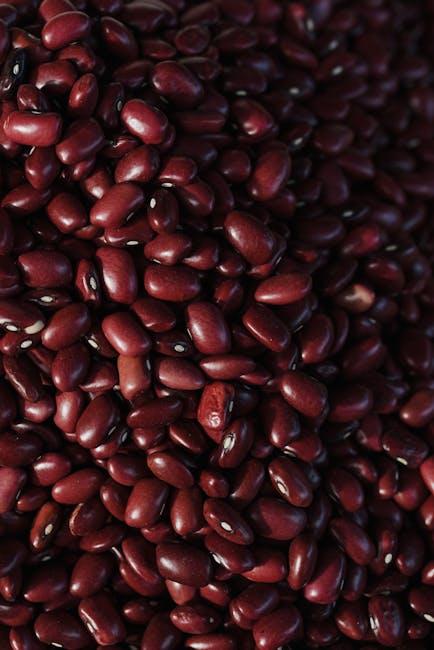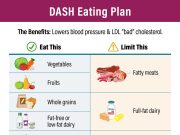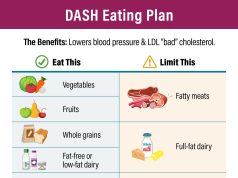In today’s fast-paced world, maintaining a balanced diet is more important than ever, yet it often feels like a daunting task. Whether you’re a seasoned vegan, a curious flexitarian, or simply someone looking to incorporate more plant-based options into your meals, finding reliable sources of protein is essential for overall health and wellness. Plant-based proteins not only provide the building blocks for strong muscles and tissues but also offer a myriad of other health benefits, including improved digestion and a lower risk of chronic diseases. In this article, we will guide you through some of the best plant-based protein sources, helping you to enrich your diet with delicious and nutritious options. Our aim is to empower you with knowledge and practical tips to make informed dietary choices that align with your lifestyle and nutritional needs, ensuring you feel supported and confident on your journey to a more balanced diet.
Understanding Plant-Based Proteins and Their Nutritional Benefits
Incorporating plant-based proteins into your diet can be a delightful and nutritious adventure. These proteins are not only rich in essential nutrients but also offer a variety of flavors and textures to enhance your meals. Here are some of the top plant-based proteins that you can easily include in your daily diet:
- Legumes: Beans, lentils, and chickpeas are excellent sources of protein. They’re also packed with fiber, which aids in digestion and keeps you feeling full longer.
- Nuts and Seeds: Almonds, chia seeds, and flaxseeds provide a good dose of protein along with healthy fats, making them perfect for snacking or adding to smoothies.
- Quinoa: This pseudo-grain is a complete protein, meaning it contains all nine essential amino acids. It’s versatile and can be used in salads, bowls, or as a rice substitute.
- Tofu and Tempeh: Made from soybeans, these are great meat substitutes that are high in protein and can absorb the flavors of any dish they are added to.
To help you plan your meals better, here’s a quick comparison of some popular plant-based proteins:
| Food | Protein (per 100g) | Calories |
|---|---|---|
| Chickpeas | 19g | 164 |
| Almonds | 21g | 576 |
| Quinoa | 14g | 368 |
| Tofu | 8g | 144 |
By understanding the nutritional profiles of these plant-based proteins, you can create a well-balanced diet that meets your protein needs while enjoying diverse and delicious meals. Remember, variety is key to ensuring you get a wide range of nutrients.

Incorporating Versatile Plant Proteins into Your Daily Meals
Exploring plant-based proteins is a delightful journey into a world of flavors and nutrients. To seamlessly integrate these versatile ingredients into your daily meals, consider these delicious and nutritious options:
- Chickpeas: These legumes are a powerhouse of protein and can be used in a variety of dishes. Whether you whip them into a creamy hummus or roast them for a crunchy snack, chickpeas are a versatile addition to any meal.
- Lentils: Available in various colors like green, brown, and red, lentils are perfect for soups, stews, and salads. They cook quickly and absorb flavors well, making them a staple for a protein-packed meal.
- Quinoa: Known as a complete protein, quinoa is a fantastic grain alternative that can be used in salads, bowls, or as a side dish. Its nutty flavor and fluffy texture make it a favorite among health enthusiasts.
- Tofu and Tempeh: Both derived from soybeans, these options are excellent for those looking for a meat substitute. Tofu is incredibly adaptable and can be baked, fried, or blended into smoothies. Tempeh, with its firm texture and nutty taste, works well in stir-fries and sandwiches.
To make the most of these proteins, consider incorporating them into your weekly meal plan. Here’s a simple table to help you balance your intake:
| Day | Protein Source | Meal Suggestion |
|---|---|---|
| Monday | Chickpeas | Chickpea Salad with Lemon Dressing |
| Wednesday | Lentils | Lentil Soup with Vegetables |
| Friday | Quinoa | Quinoa and Black Bean Bowl |
| Sunday | Tofu | Tofu Stir-Fry with Broccoli |
By thoughtfully planning your meals around these diverse plant proteins, you can ensure a balanced and satisfying diet that supports your wellness goals. Remember, the key is to experiment and find what works best for your taste and nutritional needs.

Top Plant-Based Protein Sources to Support a Healthy Lifestyle
Incorporating a variety of plant-based proteins into your diet is a fantastic way to support overall health and wellness. These sources are not only rich in essential nutrients but also come with added benefits such as fiber and antioxidants. Whether you’re a seasoned plant-based eater or just beginning to explore this lifestyle, there’s a wealth of delicious options to enjoy.
- Legumes: Beans, lentils, and chickpeas are not only versatile but packed with protein. They’re great for soups, salads, and stews.
- Nuts and Seeds: Almonds, chia seeds, and hemp seeds are excellent for snacking or adding to smoothies and cereals.
- Whole Grains: Quinoa, farro, and bulgur are not only protein-rich but also provide essential amino acids.
- Tofu and Tempeh: These soy-based products are perfect for stir-fries and grilling, offering a meaty texture with a protein punch.
| Protein Source | Protein Content (per 100g) | Additional Benefits |
|---|---|---|
| Chickpeas | 19g | High in fiber and iron |
| Quinoa | 14g | Contains all nine essential amino acids |
| Almonds | 21g | Rich in vitamin E and magnesium |
Exploring these protein-rich foods can transform your meals and support your body’s needs. By varying your sources, you ensure a balanced intake of nutrients, helping you thrive on a plant-based diet.

Tips for Balancing Plant-Based Proteins for Optimal Nutrition
Achieving a balanced intake of plant-based proteins is essential for meeting your nutritional needs and maintaining overall health. The key lies in combining different sources of plant proteins to ensure you get all the essential amino acids. Here are some strategies to help you balance your plant-based proteins effectively:
- Mix and Match: Combine legumes, grains, nuts, and seeds throughout your meals. For example, pair chickpeas with quinoa or black beans with brown rice to create a complete protein profile.
- Diverse Diet: Include a wide variety of plant-based foods in your diet. Diversity ensures that you’re getting a broad spectrum of nutrients, and it helps prevent nutritional deficiencies.
- Supplement Smartly: Consider adding protein-rich plant foods like hemp seeds or spirulina to your meals. These are excellent sources of complete proteins that can enhance your diet.
| Food | Protein (g) per 100g | Complete Protein? |
|---|---|---|
| Lentils | 9 | No |
| Quinoa | 4 | Yes |
| Chia Seeds | 17 | Yes |
| Almonds | 21 | No |
Remember, achieving optimal nutrition on a plant-based diet doesn’t have to be complicated. By thoughtfully combining different protein sources and embracing variety, you can ensure that your diet is both balanced and delicious.








































